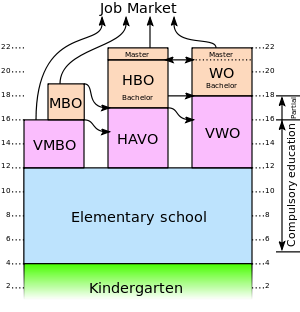Whether you study in South Korea or the United States, competition to get into a college, especially one that is considered a “good” college, is stiff. Having a college degree, with some exception, makes a significant difference in whether you will be able to have a job or career that will adequately support you and your family. However, in this scramble to succeed and survive, humanistic values are often lost. We forget to value each person and their contribution to society. The cost to our mental and overall health has become a burden society does not need to bear. I believe that there needs to be a shift from the often stressful education system focused on academic competition to a system of education that respects the minds of the youth, an updated model that I refer to as a human-centered education.
The Netherlands stands out as a shining example of human-centered education. Said to be a public education paradise, this small country with a population of just 16 million stands out as an economic superpower and the best welfare state. In the Netherlands, students select their path in 6th grade, prior to starting middle school. They can choose from three different types of secondary schools, each offering training and support for different ranges of careers. Educators, parents, and students make the decision together based on a student’s record of academic achievement and secondary school entrance examination results.

Middle schools and high schools in the Netherlands are sorted into three categories:
1. The first category is a secondary school program consisting of a six-year course in humanities. After graduation the students are qualified for admission to a WO, (wetenschappelijk onderwijs) literally translated as “scientific education,” taught at research universities.
2. In the second category, students can go through a five-year course at an upper level general school of secondary education. After graduation students may be admitted to HBO, (Hoger beroepsonderwijs) translated as “higher professional education,” offered in the areas of economics, technology, health, personal care, social welfare, and agriculture.
3. Finally, the third category consists of a four-year course for middle-level applied education geared for vocational training. After graduation students can attend MBO (middelbaar beroepsonderwijs) translated as “middle-level applied education,” also commonly referred to as vocational college.
For example, Coach Hiddink, who completed the (second category) upper-level general secondary school, was admitted to a specialized education institute for sports leaders when his talent for soccer was discovered. He attained his certification as a soccer coach, and continues his flourishing activities today. Although Hiddink did not graduate from a (first category) humanities college, he is proficient not only in English, but German, French, Spanish, and Italian.
Children in the Netherlands don’t stake their lives on college, nor are they tormented with private education. Not every child has a superior academic ability that will lead to an acclaimed occupation that yields a high-income career. The educational system in the Netherlands takes this into account and sets a career path that fits the individual’s natural talents from an early age, taking into consideration what that child would be most interested in learning when they reach 14 to 15 years of age based upon their innate capabilities. After graduating from secondary school the student is qualified to enter into the field that they are interested in, or in cases where they need to, move on to college.
 The Netherlands has established a good model of a workable, human-centered educational system. Such a system recognizes that, for human beings, work is important. Through work, people express themselves and manifest their value, and are respected for it. That’s why the value of occupations has to be democratized. This is what I call “job democracy.” What we need now is the actualization of a job democracy where all work, all occupations are respected by society based on a political democracy where political authorities are respected as citizens, and an economic democracy where laborers are also respected, and small and mid-sized businesses are respected as well. For example, in addition to finding education for every type of job that is relatively free of stigma, in the Netherlands you also find that the wage disparity between people of differing academic achievement is relatively small.
The Netherlands has established a good model of a workable, human-centered educational system. Such a system recognizes that, for human beings, work is important. Through work, people express themselves and manifest their value, and are respected for it. That’s why the value of occupations has to be democratized. This is what I call “job democracy.” What we need now is the actualization of a job democracy where all work, all occupations are respected by society based on a political democracy where political authorities are respected as citizens, and an economic democracy where laborers are also respected, and small and mid-sized businesses are respected as well. For example, in addition to finding education for every type of job that is relatively free of stigma, in the Netherlands you also find that the wage disparity between people of differing academic achievement is relatively small.
In order to create a job democracy, the value of work and occupation has to be newly established; there needs to be improvement of primary, secondary, and higher education systems; and the wage-disparity between differing levels of academic achievement must be reduced. At the same time, there has to be a change in the overall societal perceptions regarding professions. The Netherlands’ education and economic system may not be perfect. But it gives us some great insights on how to build an education system that supports each student to choose a profession that they enjoy and have a natural ability for.

1 Comment. Leave new
Thank you for this posting. This is common sense education!